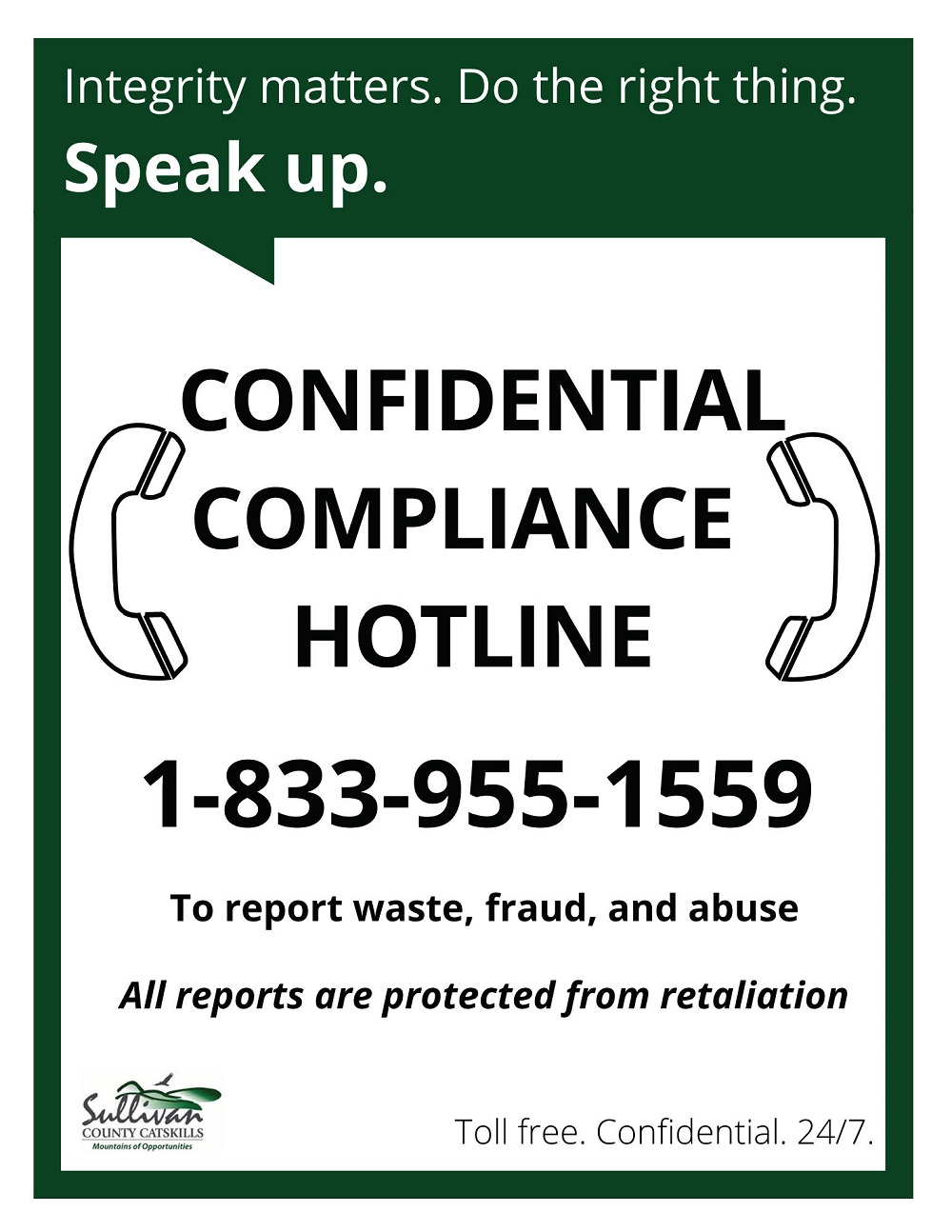Monticello, NY – Sullivan County Public Health officials and staff participated on a statewide conference call today to get an update from the NYS Department of Health Commissioner about the increase in the number of influenza cases and hospitalizations across New York. Sullivan County Public Health Services has implemented local flu surveillance reporting protocols in collaboration with area healthcare providers to help monitor flu prevalence in the County.
According to the Centers for Disease Control (CDC), it is difficult to say how severe this flu season will ultimately be, but at this time hospitalization rates are now higher than what was reported during the same week in prior years. The proportion of deaths attributed to pneumonia and influenza is now above the epidemic threshold, which means that more deaths are occurring due to pneumonia and influenza than would be expected at this time of year.
Another 10 flu-related pediatric deaths were reported nationally this week, bringing the total number of flu-related pediatric deaths reported to CDC so far to 30. These flu activity indicators are notable for the sheer volume and intensity of flu that is occurring in most of the country at the same time.
Here are a few main points on flu activity this year so far:
o It’s likely there will be significant flu activity for many weeks to come.
o So far, influenza A (H3N2) viruses have been most common this season.
o H3N2-predominant seasons have been associated with more severe illness, especially among people older than 65 years and children.
o Vaccine effectiveness (VE) against H3N2 viruses in the past has been around 30%, whereas effectiveness against H1N1 viruses has been about 60% and effectiveness against influenza B viruses has been around 50%.
The relatively lower vaccine effectiveness seen against H3N2 viruses may, in part, be caused by egg-adapted changes introduced when H3N2 viruses are optimized for growth in eggs, which is required for the egg-based production used to produce most U.S. flu vaccines.
Flu is difficult to predict. It’s not possible to say in advance precisely when the 2017-2018 flu season will peak or end, how severe it will be, or what viruses will circulate over the course of the flu season.
It’s not too late to get vaccinated. As long as flu viruses are circulating, vaccination should continue throughout the flu season, even in January or later. We cannot know which viruses will circulate over the season and which virus will predominate. Flu vaccine protects against three or four different flu viruses, depending on which vaccine you get.
A 2017 study was the first of its kind to show that flu vaccination can significantly reduce a child’s risk of dying from influenza.
Getting vaccinated yourself protects people around you, including those who are more vulnerable to serious flu illness, like babies and young children, older people, and people with certain chronic health conditions.
While flu vaccine is not perfect and some people who get vaccinated may still get flu, there is some data to suggest that flu vaccination may make illness milder.
Influenza Treatment: Antiviral Medications
• Antiviral drugs are prescription medicines (pills, liquid or an inhaled powder) and are not available over the counter.
• Influenza antiviral drugs are the only drugs approved to treat influenza infection.
• Antiviral drugs are different from antibiotics. Antiviral drugs fight viruses (like flu viruses) in your body; antibiotics fight infections in your body that are caused by bacteria.
• Antiviral drugs can make flu illness milder and shorten the time you are sick.
• There also are data showing that antiviral drugs may prevent serious flu complications such preventing pneumonia and hospitalizations in outpatients, and reducing mortality and length of stay in hospitalized patients.
• Antiviral drugs work best when started within two days of symptoms first appearing, but there are data to suggest they can still be beneficial in very ill patients even up to five days after getting sick. This would be especially important for a person who is at high risk of serious flu complications and who is very sick.
Sullivan County Public Health Services will be providing flu vaccinations at its clinic at 50 Community Lane, Liberty, to residents by appointment only between the hours of 10 a.m. and 12 p.m., Monday through Friday, beginning January 22, until supplies last. You must call 845-292-5910 x 0 to make an appointment during business hours (9 a.m.- 5 p.m.).
Alternatively, you can go to https://vaccinefinder.org or www.cdc.gov/flu to find a location near you where you can get vaccinated at a local pharmacy, or go to your healthcare provider.
In addition to getting a flu shot, it's important to practice good hand-hygiene: Wash your hands often with soap and hot water for at least 20 seconds to protect yourself from germs and avoid spreading them to others. Carry an alcohol-based hand sanitizer to use when soap and water are not available. Choose a product with at least 60% alcohol. Do not cough or sneeze into your hands. Instead, cover your mouth and nose with a tissue.
For more information about the flu, visit https://www.health.ny.gov/diseases/communicable/influenza/seasonal

